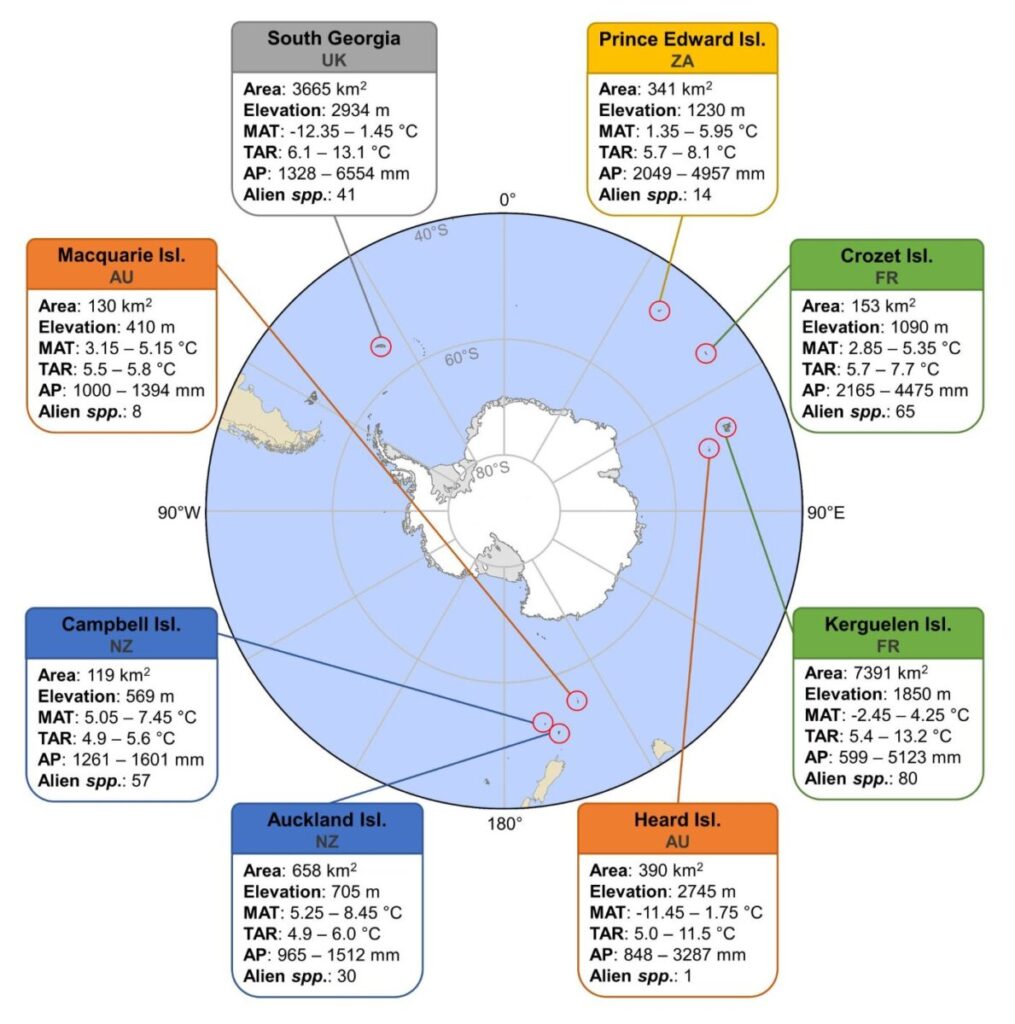This recent research article led by Tom Vorstenbosch, published in Ecology and Evolution, used the sub-Antarctic as a model region to test how variable the predictions of species distribution models are under non-analogue climatic conditions. The study predicted occurrences of 142 plant species already introduced on several of the eight islands in the Southern Ocean, using seven different model variable sets.
Predictions showed vastly divergent results depending on the inclusion of temperature variables with differing degrees of non-analogousness. Whereas some models predicted the alien species nearly ubiquitously in the sub-Antarctic, others predicted almost no species to occur on any of the islands. Moreover, model selection was the most important factor contributing to prediction variability, followed by island and species identity.
These results highlight that it is vital to test for novel climatic conditions when modelling alien species on the edges of global climate, and to include multiple models when such conditions are present.

Vorstenbosch, T., Essl, F., Lenzner, B., Wessely, J., Dullinger, S. (2024). Venturing into the unknown: The importance of variable selection when modelling alien species under non‐analogue climatic conditions. Ecology and Evolution, 14(10), e70490. https://doi.org/10.1002/ece3.70490

